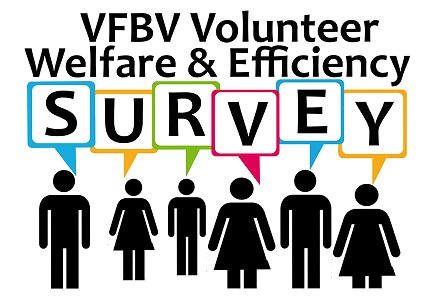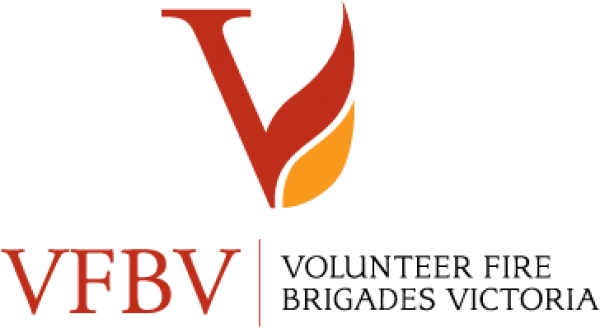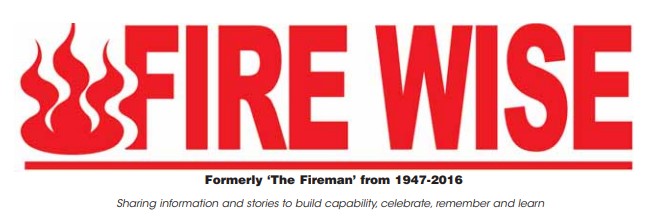Policy should help not hinder
By Adam Barnett, VFBV Chief Executive Officer
It is clear from the fire seasons being experienced in Queensland and NSW so far this spring that this year’s fire season here in Victoria is more likely than not to be a return to a longer and busier season ahead.
Given any fire season in Victoria has the potential to be ferocious, preparation and planning is as always – key.
And while our community facing messaging is focussed on ensuring communities and residents focus on making their fire plans, it is a timely reminder about the importance of our own planning as volunteers to ensure we are at full operational readiness for the season ahead.
Now is a great time to refresh your plan for your own family outlining what they are going to do if you are called away. Also now is a good time to have those discussions with your employer about what flexibility you might have to be able to respond during the fire season. And from a brigade perspective, now is a great time to ensure all operational members have completed their Chief Officer’s mandatory requirements and burn over drill. Get it over and done with before the silly season to ensure you’re not trying to balance holiday commitments with fire season preparedness activities.
It is also a busy time from a consultation perspective, with multiple items open for feedback. Don’t forget to regularly check our consultation dashboard on the VFBV website.
Last month we closed the feedback on CFA’s draft proposals to update the brigade/ group financial governance policies with CFA proposing six new policies. State Council spent considerable time considering the feedback and studying volunteer responses.
It is clear from the feedback that volunteer morale continues to be significantly impacted, and volunteer feedback was dominated by complaints about additional bureaucracy and aspects that some described as petty. From an overall perspective, the policy suite only enjoyed a very low 37% satisfaction score.
The difficult part for us when we are confronted with such overwhelming negative feedback is navigating the subsequent conversations with CFA and trying to convince them to revisit their base assumptions. While CFA has been known to shoot the messenger in the past, I do have confidence that there is a maturity among the new executive team to take the feedback constructively and work though the issues.
The feedback reinforces my view that CFA volunteers are not opposed to change but are deeply cynical about constant changes floated without any analysis or evidence quantifying the problem that is trying to be fixed. The case for change, or more succinctly the complete lack of a case for change to accompany the proposals does not help. I suspect volunteers would be far more open to change if they were let in on how the proposed changes will actually result in a demonstrable improvement.
As I was going through the hundreds of individual items of volunteer feedback, I was reminded of the famous quotes attributed to American author Mark Twain and American poet Robert Frost “A bank is a place where they lend you an umbrella in fair weather and ask for it back again when it begins to rain.”
Volunteer feedback continues to highlight the disconnect between CFA policy and what brigades and groups think the organisation should be doing to better support them where and when they need it.
The fact of the matter is CFA is chronically underfunded, and it is its volunteers who not only donate their time to provide CFA’s services to their communities, but at the same time give up even more of their precious time to have to fundraise to purchase and upgrade the very same basic equipment, trucks, stations and protective clothing that the government routinely provides to its paid services.
Now this lack of funding isn’t the fault of CFA management. That responsibility falls squarely on government. However, it does provide important context on how volunteers are going to react when CFA proposed policy starts reaching across and trying to control the very things brigades are being forced to do just to survive.
At the end of the day, brigades will do what they can to ensure their communities have the resources and equipment needed to protect themselves from fire and other emergencies. CFA should either help, or at the very least get out of the way.
It is not until you look at CFA’s proposed finance policies from this perspective, that you start to appreciate the pent-up anger and frustration volunteers express towards CFA policy that just makes things harder.
I have yet to meet a brigade that does not believe in strong financial governance, and the importance of ensuring community funds are used responsibly and to best effect. But to think that this would be better achieved by pages and pages of policy and red tape just fails to pass muster.
The most frequent criticism by volunteers to the draft policies was the perception that CFA is trying to treat its volunteers as public servants. Many volunteers were perplexed at why it was so remarkable to think that policies written for a large government bureaucracy like the VPS, who spend hundreds of millions of taxpayer funds may look and be different to small community fire brigades that do their own fundraising and in of themselves generate more than $2.6 billion dollars of public value to the State of Victoria through their volunteer efforts alone. They are not a drain on the public purse, in fact they are one of the very few that actually add value back into the system.
Is it really such a foreign concept to state the obvious and ensure CFA volunteers are not treated like Victorian public servants? There are no government departments I am aware that pass around a hat to all its employees so the staff can donate their own money to buy the pens, paper and photocopier used in their government funded workplace. I don’t recall ever seeing a public servant giving up their personal time to fundraise for public donations so they could replace their government issued fleet vehicle. I don’t recall seeing police officers requested to buy their own guns or fundraise for their highway patrol cars. When were paramedics asked to buy their own first aid kits, defibrillators let alone their own ambulances? I also can’t remember seeing defence force personnel being asked to purchase their own dress uniforms. So why on earth would anyone think it is ok that volunteer firefighters should have to fight and fundraise to buy their own fire trucks, fire stations and protective equipment?
The volunteer feedback was littered with these comparisons and pointing out the tone deafness in some of the proposed policies. Volunteers must fund their own welfare account and annual awards nights. Excuse me? These examples start to illustrate and explain the depth of anger and frustration evident in the volunteer feedback to the draft policies. Not all the feedback was bad mind you, and many aspects of the policies were seen as common sense and practical, yet there were a handful of positions and policy statements that simply incensed volunteers, and fair enough too.
VFBV has now formally submitted its feedback to CFA and have requested the policies be reconsidered, and that the tone and language used throughout is less condescending. For example, rather than “permitting” brigades to apply for grants or sponsorship, we have suggested brigades should be empowered by being “authorised.”
VFBV has also reinforced its long-held position of desiring a minimally effective regulatory regime. In other words, we believe CFA policy to be more effective if red tape and bureaucracy is minimised, and that policy contains only the fewest number of rules, requirements, obligations and procedures to achieve the desired outcome. Additional obligations should only be imposed where there is a clear need, and a measurable benefit to justify its impost.
Volunteers have asked for greater flexibility, and for rules to better cater to the diverse range and size of brigades, rather than simply thinking a one size fits all will work for everyone. For example, a brigade financial plan for a large brigade is likely to look very different to a small brigade whose only income is their $350 annual brigade allowance.
Similarly, volunteers have opposed a ban on brigades being able to donate to worthy community causes such as a bushfire relief funds, especially from brigade income derived by volunteers providing their services under commercial arrangements, such as business paying for fire equipment maintenance and servicing of extinguishers.
This income is generated by volunteers on a fee for service basis, and its expenditure should remain at the discretion of the brigade. CFA often benefits from the community’s generosity, is it so hard to think brigades may want to pay that forward?
We will attempt to work constructively with CFA to revise the policies and will keep you informed of progress. We can’t do it without you though, and I again thank all those that provided their feedback. It has made a big difference and is being used to help affect real change.
Survey now open

This year’s VFBV Volunteer Welfare and Efficiency Survey is open.
The survey is an annual snapshot of volunteer opinion, using questions on issues chosen by CFA volunteers. All responses are confidential, but de-identified results go straight to decision makers. Help us make a difference.
The survey measures volunteer opinions on what is important to them and how well CFA is performing according to what they are experiencing, the gap between the measurement of importance and performance is referred to as the Volunteer Welfare and Efficiency Level (VolWEL) outcome.
A high VolWEL is a sign that things are not working well, while a low VolWEL is a sign that things are working well. Any VolWEL over 2.0 indicates a large to critical gap is emerging and volunteers are highly dissatisfied with arrangements requiring priority attention.
Scan the QR code below, or visit the VFBV website to do the survey. Paper copies are also available by calling (03) 9886 1141.

Joint Committee EOI
We are seeking expressions of interest from volunteers to nominate to the CFA/VFBV Joint Committee’s for the 2024 calendar year.
If you feel you can contribute and have the time and want to be an integral part of our Joint Committee process – then please visit our website or talk to your local VFBV State Councillor or VFBV Support Officer for a nomination form.
Nominations are due 20th November 2023.
We are seeking volunteers from broad and diverse backgrounds to participate in our consultative structures. Young members, women and members of culturally diverse backgrounds are highly encouraged to nominate. If you would like to learn more about what the role entails and how to get involved, please contact your local VFBV Support Officer, State Councillor or Executive Officer Mark Dryden.
SOP Consultation

We are seeking feedback on revisions to six Standard Operating Procedures (SOPs).
These SOPs include: 6.02 Crew Composition (16 and 17 year olds); 6.05 Helmet identification; 9.15 Mayday and Hostile Acts Radio Signals; 9.32 Entrapment Procedure for Appliances; 10.03 Asbestos Incidents; and 14.06 Notification of Injuries and Fatalities.
VFBV is seeking broad feedback and comment from volunteers in order to inform and assist with VFBV formal responses to these documents.
VFBV District Councils have also been invited to lead local discussion at the District level.
The draft SOPs and closing dates are available from the VFBV website and your local District Council. Simple feedback surveys are also available to assist members provide feedback.
Feedback survey’s currently available are:
SOP 6.05 Helmet Identification – closes Monday 13 November
SOP 14.06 Notification of Injuries and Fatalities – closes Monday 13 November
SOP 6.02 Crew Composition (16 and 17 year olds) – closes Monday 4 December
Given the importance of SOPs in CFA’s operational doctrine, VFBV encourages all senior volunteers to make themselves familiar with the proposed changes and provide feedback ASAP.
Board Elections

Following the October AGM, the VFBV Board has met and held its annual elections. Samantha Collins has been re-elected as State President, Andy Cusack AFSM has been re-elected as State Vice President, and Libby Hay has been re-elected as Treasurer.
State Council also welcomed two new Board members, Mandy Straw from District 5, and Danielle Watkins from District 9 who were appointed by the State Council Executive interview panel to replace retiring board members Jan Cleary and David Sidebottom.
Mandy is a volunteer firefighter with the Gazette Fire Brigade, DGO1 for Mt Rouse Group and Chair of the District 5 Health Safety and Environment Committee.
Danielle is a volunteer firefighter with the Warragul Fire Brigade and Chair of the South East regions Diversity and Inclusion Advisory Council and rep to the District 9 DPC.
State Council also held elections for the two ex-officio members who are appointed by State Council for a one-year term to the VFBV Board, with both Graeme Jilbert (District 18) and Howard Smith (District 24) re-elected to the Board for a further term.
Congratulations to all office holders, and a warm welcome to both Mandy and Danielle to the Board and a very big thank-you to all retiring members for their valued contributions over the past year.
Emergency Services Foundation Scholarships

Applications are now open for the Emergency Services Foundation (ESF) Scholarships.
The ESF scholarship program provides an opportunity for volunteers and paid staff from Victoria’s emergency services to undertake a study tour that will lead to improvements in Victoria’s emergency management sector. ESF has also partnered with Rotary in 2023 to sponsor an additional two scholarships.
The focus of the ESF scholarships in recent years has shifted towards focusing on applications that address gaps in mental health and wellbeing knowledge.
Applications close 19 November 2023 and successful applicants will be announced by the end of the year.
For more information on the scholarships please visit the VFBV website.
Interstate Deployments
CFA are currently supporting deployments in three States.
Five strike teams are currently deployed into Queensland, as well as members contributing to three incident Management Teams (IMT’s) to support the resourcing for Toowoomba and Rockhampton regions.
CFA have also deployed four CFA air attack supervisors and one aircraft officer to Queensland, with another Air Attack Supervisor deployed to New South Wales.
Two volunteer instructors have also been deployed to the Northern Territory to assist in the training of Park Rangers and firefighters in Alice Springs and Darwin.
Thank-you to all members who have contributed or facilitated these interstate deployments. We wish all crews safe travels. Thank you to all remaining members who continue to remain behind and on-call within Victoria that allows these members to be deployed afar while our own communities remain protected. This is the benefit of volunteer surge capacity and the critical role it plays in not just keeping Victoria safe, but Australia as well.
Presumptive Legislation
In addition to primary site cervical, ovarian and uterine cancer, VFBV is pursuing the further expansion of the scheme to pick up the remaining six cancers that were added to the Commonwealth’s scheme being primary site lung, skin, penile, pancreatic and thyroid cancers and malignant mesothelioma.
VFBV is calling on the Victorian Government to align its scheme to ensure Victorian firefighters enjoy the same protections and support as their federal counterparts.
We have published a national overview table on our website that allows members to compare each of the presumptive schemes in operation across the country. As you will see, Victoria is falling behind other jurisdictions.
VFBV is seeking the support of all government, opposition and minor party MP’s including independents to support the amendments introduced by the Greens, that would see Victoria’s scheme expanded to the same 21 cancers that the Tasmanian government has introduced.
Fire Wise – November 2023 online only edition

The November 2023 edition of Fire Wise has been published online only, this edition and past editions are available from the Fire Wise website.
You can support Fire Wise and role it plays as an independent voice in keeping volunteers informed by becoming a subscriber. To become a Fire Wise subscriber visit the Fire Wise website or contact the Managing Editor of Fire Wise, Gordon Rippon-King either by phone 0402 051 412 or email This email address is being protected from spambots. You need JavaScript enabled to view it.
Recent articles on the VFBV website
Open for Consultation Dashboard
2023 VFBV Volunteer Survey – Now Open
2024 VFBV/CFA Joint Committee District Nominees Expression of Interest
Presumptive Legislation Update
Feedback Requested – Standard Operating Procedures
2023/24 Urban competitions and updated rule book
Emergency Services Foundation Scholarships
Enjoy the VFBV monthly newsletter?
If you enjoy reading the VFBV newsletter each month, why not share it with your fellow volunteers?
Either share this page with others who may enjoy the articles or encourage other volunteers to sign up to receive their own copy via email each month here.
Want to read the VFBV 2-minute briefings from the CFA/VFBV Joint Committees?
The latest edition along with previous editions can be downloaded from the VFBV website here.


